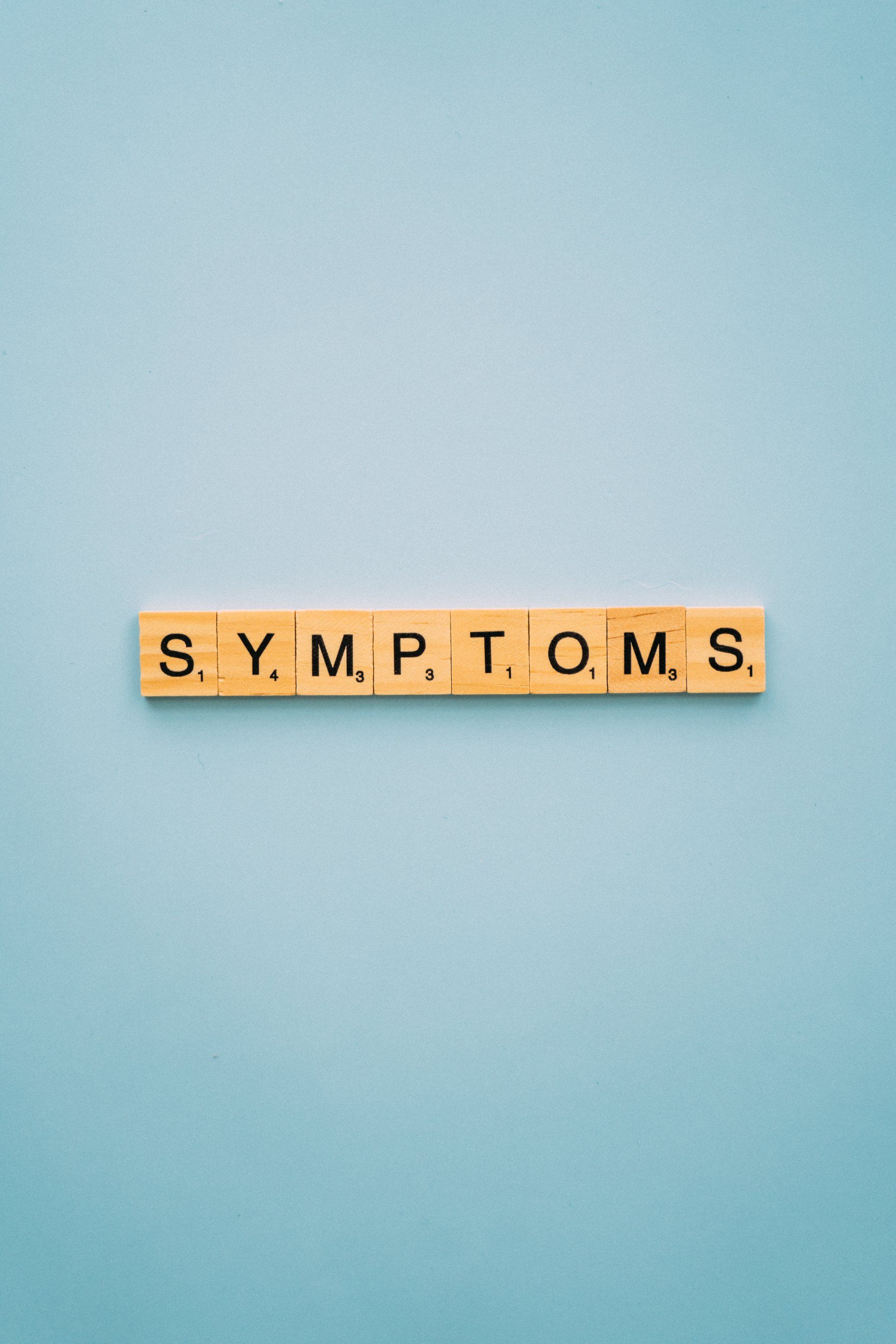Unveiling the Puzzle of Major Depressive Disorder – Examining Symptoms
Dr. Jamie Rogers • April 17, 2024
Mental health is often likened to an iceberg – what we see on the surface is just a fragment of what lies beneath. Clinical Depression, or Major Depressive Disorder (MDD), is a prevalent and complex condition that affects the 'below-the-surface' aspects of our emotional well-being.
This long-form blog post is a deep-dive into the shadowed waters of MDD, focusing on its symptoms, recognitions, and the essential need for understanding and support.
The Prevalence of the Unseen Struggle
Depression is more than a fleeting sense of sadness; it's a heavyweight champion that enters the ring against the human spirit. In the U.S, approximately 21.0 million adults have experienced at least one major depressive episode, according to the National Institute of Mental Health.
This staggering number reflects a significant prevalence of MDD, signifying just how common yet unrecognizable the condition can be.
Defining Major Depressive Disorder (MDD)
Amidst the vast sea of emotions, MDD is a tempest that persistently darkens the skies. It differs from the ordinary sadness one might experience after a troubling event – it lasts longer, runs deeper, and is often causeless, except for the intricacies of brain chemistry and life experiences of the person affected.
MDD is diagnostically defined by a set of symptoms and their duration, severity, and impact on daily life.
Insights Into Primary Symptoms
The tableau of MDD is painted with several strokes, each signifying a particular struggle. Recognizing these symptoms is crucial, for it's the first step in acknowledging the presence of MDD in a person’s life. These primary symptoms include:
- Persistent Low Mood: An enduring state of unhappiness or despondency is one of the hallmarks of MDD.
- Loss of Interest or Pleasure: Activities once found joyous or engaging may no longer elicit positive feelings.
- Changes in Appetite or Weight: MDD plays with the body as much as the mind, leading to erratic eating patterns and consequential weight changes.
- Sleep Disturbances: Insomnia, excessive sleeping, or restlessness during the night can all present as symptoms of MDD.
- Fatigue: A persistent lack of energy, often unexplained by physical exertion.
- Feelings of Worthlessness or Guilt: A self-perception that is harsh, unyielding, and laden with guilt.
- Difficulty Concentrating or Making Decisions:
Cognitive functions can be greatly impaired during an MDD episode.
These symptoms, in isolation, may seem ordinary. However, it's their pervasiveness and persistence that mark their association with MDD.
Less-Known Indicators – When It's More Than "Just a Phase"
The canvas of MDD is not limited to the primary symptoms; it includes many subtle strokes that may often be overlooked:
- Physical Aches and Pains: Those grappling with MDD may also endure a heightened sensitivity to pain and unexplained bodily aches.
- Irritability or Restlessness: An underrecognized manifestation of MDD that can lead to interpersonal conflicts and stress.
- Thoughts of Death or Suicide:
A particularly somber reflection of MDD, these thoughts must never go unnoticed or unaddressed.
These less-known symptoms serve as a silent scream, urging for help and understanding.
The Duration and Severity Criteria for Diagnosis
The clinical diagnosis of MDD is not arbitrarily formulated. A crucial aspect is the duration and severity of symptoms. To be diagnosed with MDD, one must experience a major depressive episode for most of the day, nearly every day, for at least two weeks. The severity of symptoms should be debilitating – interrupting daily life, work, or relationships.
The Impact on Daily Life
The profound impact of Major Depressive Disorder on an individual's daily life cannot be understated. The symptoms of MDD intertwine intricately with the flow of everyday activities, often leading to significant disruption and distress. These impacts include:
- Social Isolation: Individuals with MDD may withdraw from social interactions, leading to increased feelings of loneliness and isolation.
- Workplace Challenges: Lack of concentration, fatigue, and low motivation can severely affect productivity and the ability to maintain employment.
- Strain on Relationships: The irritability, persistent sadness, and withdrawal symptomatic of MDD can put a heavy strain on personal relationships with family and friends.
- Decreased Physical Health: The link between mental and physical health is substantial, with MDD contributing to worsened outcomes in various physical health conditions.
- Increased Substance Use:
Some individuals may turn to alcohol or drugs as a coping mechanism, which can lead to substance use disorders alongside MDD.
Understanding the pervasive effects of MDD on daily living underscores the critical importance of seeking support and treatment.
Combatting Misconceptions
- Myth: Depression Is Simply Being Sad: Many believe depression equates to sadness. However, Major Depressive Disorder encompasses a much broader spectrum of symptoms, including physical manifestations and cognitive disruptions, beyond mere emotional sadness.
- Misconception: Strong People Don’t Get Depressed: Depression does not discriminate by personal strength. It's a complex disorder influenced by a variety of factors, including genetics, brain chemistry, and life events, affecting anyone regardless of their resilience.
- Fallacy: Medication Is the Only Treatment: While medication can be an effective component of treatment, it’s not the sole solution. Therapy, lifestyle changes, and social support play integral roles in the holistic treatment of MDD.
- Myth: Depression Will Just Go Away on Its Own: Assuming that depression will simply fade away over time can be detrimental. Professional help and treatment are often necessary for recovery.
- Misunderstanding: Talking About Depression Makes It Worse: Openly discussing feelings and symptoms associated with depression is essential for understanding and treating the disorder. Silence often exacerbates the situation, fostering isolation and misunderstanding.
Providing a Supportive Foundation
- Encourage Open Communication: Cultivate an environment where feelings and concerns can be expressed freely without judgment. This can help individuals with MDD feel understood and less isolated.
- Educate Yourself and Others: Understanding MDD, its symptoms, treatments, and impacts can dismantle stigma and foster empathy. Knowledge is power when it comes to supporting someone battling depression.
- Offer Practical Help: Sometimes, the simplest acts can make a significant difference. Offering to help with daily tasks can alleviate the feeling of overwhelm that often accompanies MDD.
- Be Patient: Recovery from MDD is a process that doesn't follow a linear path. Being patient and understanding can be a tremendous source of comfort and support.
- Encourage Professional Help: While offering your support is invaluable, encouraging the pursuit of professional treatment is crucial. Helping them find resources or even accompanying them to appointments can be incredibly supportive.
- Stay Connected: Making an effort to stay in touch, even when your offers are initially refused, communicates that you care and are there for them, combating feelings of isolation.
- Look After Yourself: Supporting someone with MDD can be emotionally taxing. Ensure you're also taking care of your emotional and physical well-being, seeking support for yourself when needed.
Seeking Professional Assistance
Seeking the assistance of a professional, like a Greenville NC therapist, is a crucial step towards the path of healing for those affected by Major Depressive Disorder. Therapists, particularly family therapists in Greenville, NC, are equipped with the tools and understanding to provide the necessary support and therapeutic interventions.
These professionals can offer individualized care, helping to uncover the roots of depression and work towards developing effective coping strategies. Engaging with a therapist in Greenville NC enables not just the individual, but also their family, to receive guidance and support.
Family therapy can be particularly beneficial in addressing the broader impacts of MDD, fostering a deeper understanding among family members and strengthening the support network essential for recovery.
Conclusion
While MDD can cast a suffocating shadow on life, recognition of its symptoms and subsequent professional assistance offer a beacon of hope. It is resilience in the face of this darkness, coupled with the collective understanding and support of society, that paves the way for thriving beyond MDD.
About True North Integrated Mental Health
True North Integrated Mental Health is a renowned mental health facility based in Greenville, NC, specializing in providing comprehensive therapeutic services to children and adults with various mental health needs. Our services encompass a wide range of therapy types, including the innovative TMS Therapy for Depression. Our commitment to mental health care, fine-tuned to the unique needs of each child, makes True North Integrated Mental Health a trusted resource for families seeking support for their children in the Greenville area.
To learn more about our range of services, or to schedule a consultation, please visit our contact page. Your mental health is our priority, and we are committed to providing comprehensive, compassionate care.

Our Helpful Links
Schedule a Consultation
Get help with depression today! It's important to know that you are not alone.
Ready to get started?
At TrueNorth IMH in Greenville, NC, our neurocare and psychiatric services are dedicated to enhancing mental well-being within the local community and across Pitt County. We excel in delivering tailor-made treatment plans designed to assist you in achieving a more fulfilling life.
Our dedicated team is unwavering in their commitment to assist you on your individual path toward improved mental health, whether you are contending with anxiety, depression, PTSD, ADD, or any other mental health challenge.
Located in the heart of Greenville North Carolina? We're here to provide support!


NAVIGATION
TRUE NORTH INTEGRATIVE MENTAL HEALTH & S.M.E.G. FAMILY MENTAL HEALTH